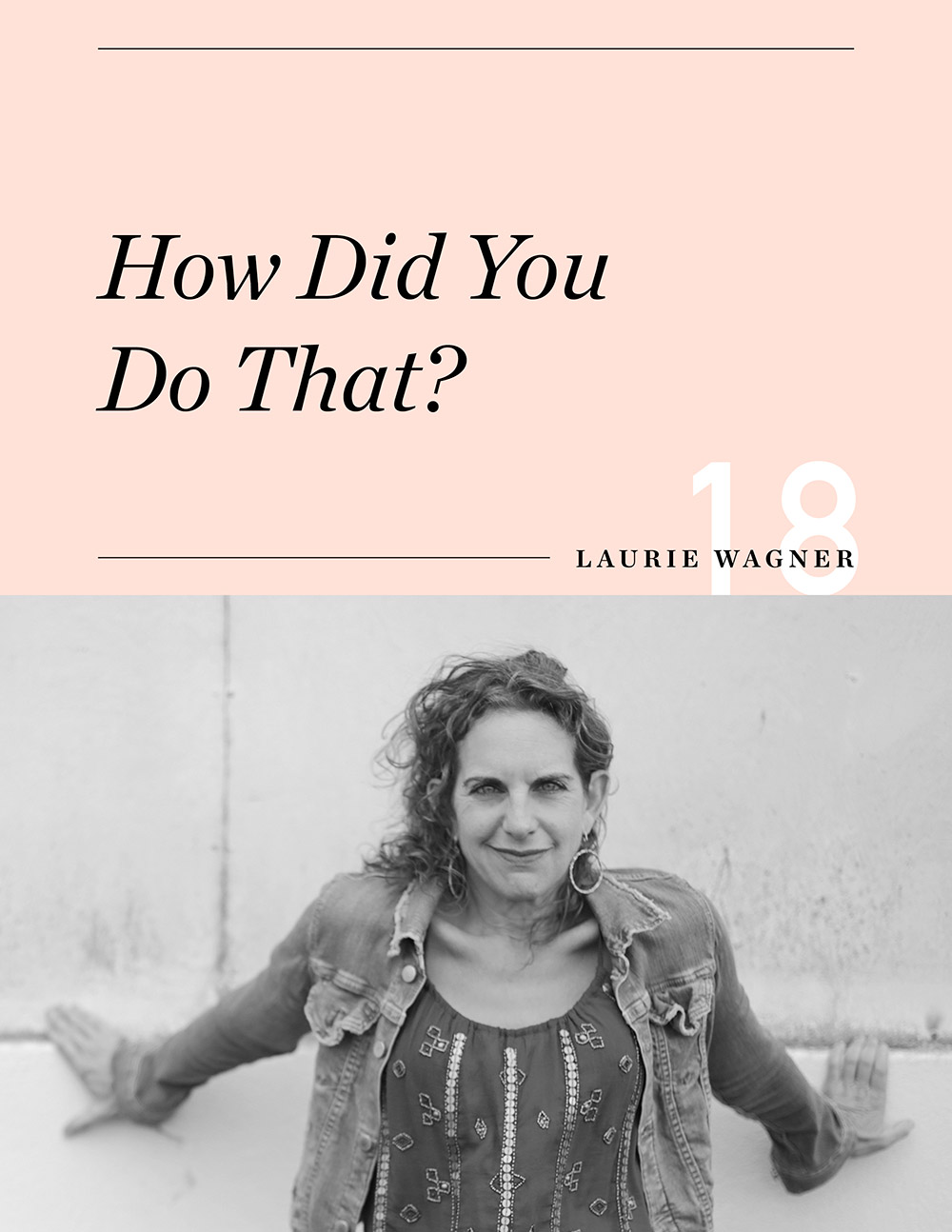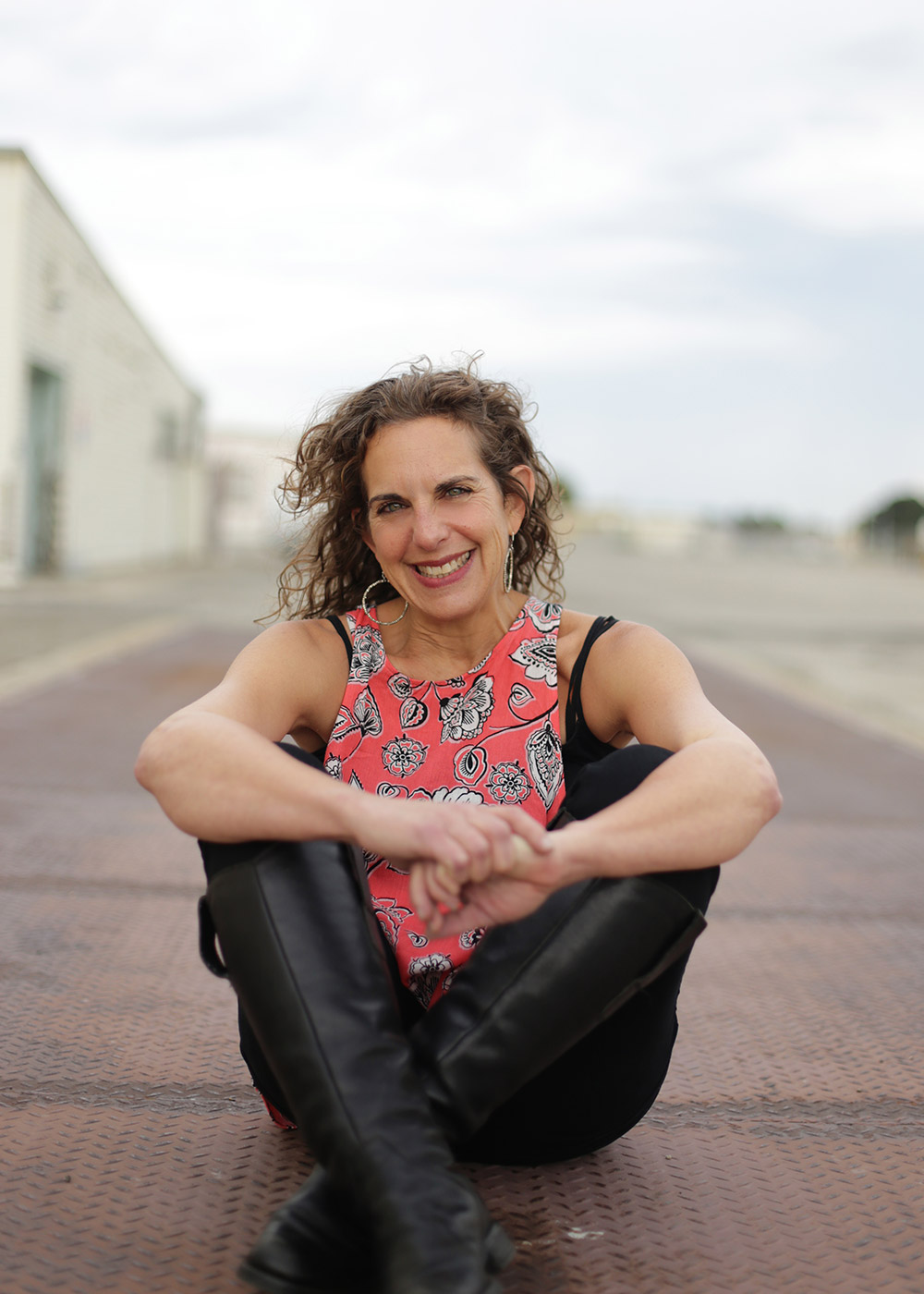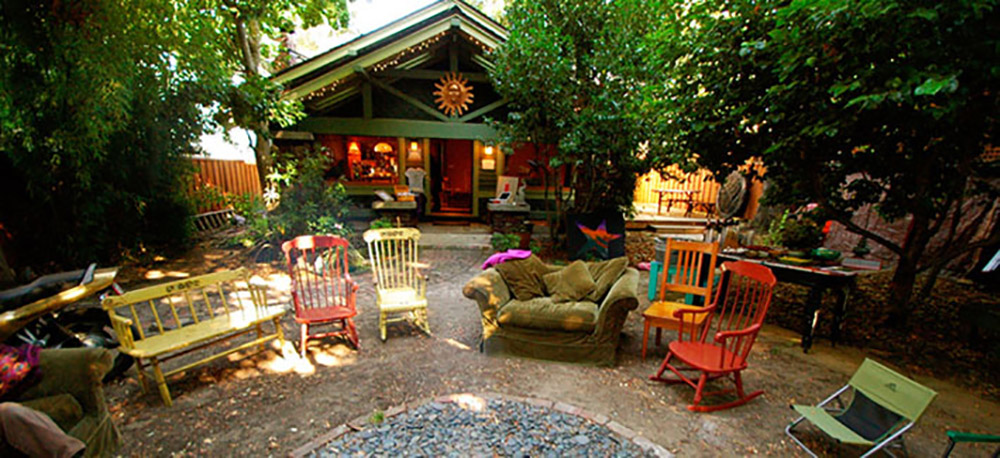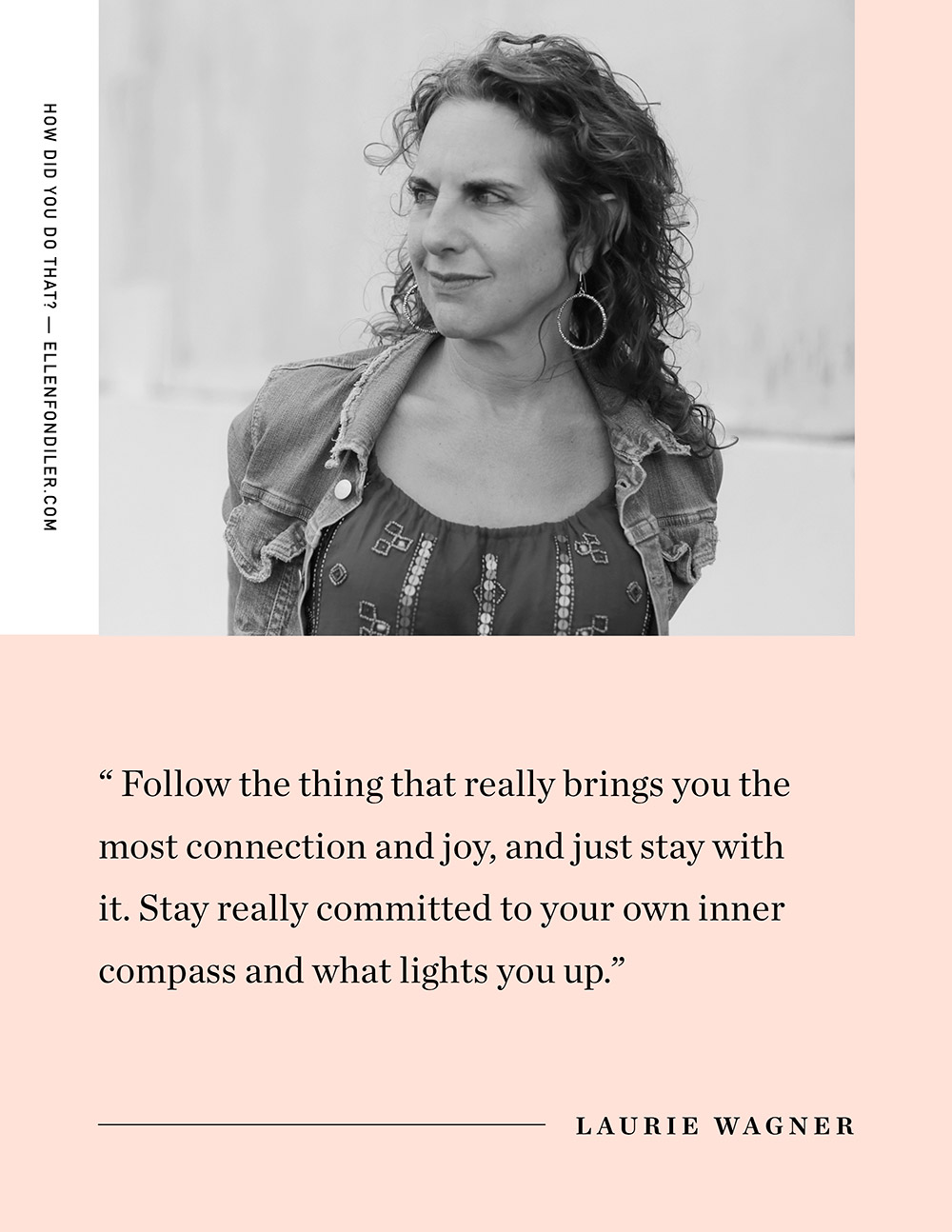
Whenever I meet someone who’s got a really cool job, who runs a thriving business, or who has completed an amazing project, I always want to know: “How did you do that?”
I’m always curious to hear the “behind-the-scenes story” — who they emailed, what they said, how they got their first client, how they got their foot in the door — the exact steps that they took to achieve their goal.
HOW DID YOU DO THAT? is an interview series where we get to hear the REAL story behind someone’s success—not the polished, neat and tidy version.
To see a complete list of all the interviews that have been completed to date, head over here.

Name: Laurie Wagner
Location: Alameda, California
Profession: Author, Writing Instructor, Founder of 27 Powers
You started out wanting to write music for a living, but then changed your mind and decided to focus on writing stories instead. You found success pretty early on; you have written five books (all published by Chronicle Books) and have been published in numerous magazines.
Writing is a tough way to make a living, at best. But you have persevered. You have allowed yourself to define what it means to be a writer in very broad terms. Can you talk about that a bit? How were you able to allow yourself to grow as a writer and also figure out a way to make money?
Everything that I’ve done in the last 25 years has had something in common. I worked in book stores, I went to work for a major N.Y. publisher, I wrote for newspapers and magazines, I wrote books, worked on documentary films, and then I became a writing teacher. I never had a strategy or a game plan – but I see now that all of those jobs had writing/publishing/creating in common. My love of words and writing, my love of books and stories – – that love got to express itself in a variety of ways – so I was lucky like that.
And I’m also practical. So while I’ve always been an artist, I’ve always had my eye on where the money was going to come from. Making a living writing for magazines or writing books was wonderful, but it wasn’t always practical to make things for the market and depend on that market for my income. I had little kids, my husband was an artist and I needed a stable income. Teaching became that.
Today I teach nine writing classes a week on a video platform to people all over the world, and also live, here at home in Northern California. And I also keep my own writing alive, writing every two weeks with friends.
Take us back to the very beginning of your writing journey. Can you remember your very first piece of published writing? What was it? What happened? Were you nervous? How did it feel to put a piece of your artwork “out there” into the public eye?
My first published piece was for a Bay Area art magazine called Metier. I think it was a piece about naked models. I really loved the interview process. I loved asking questions and getting to know people. It was like permission to be nosy. I was probably stunned to see my own words printed, and a byline. I probably collected 20 of the magazines so I could share them with friends and family. It added a new and vibrant quality to my life. I don’t remember being nervous about being “out there.” I think I wanted more of it.
There are so many ways to be a writer. In the last 15 years, you have pivoted from writing books to teaching others how to express themselves on the page. You teach a practice called Wild Writing that is a timed writing process designed to bypass the inner critic in order to show up authentically on the page. What caused you to make the shift from writer to teacher?
Purely practical. I’d written a few books, they were beautiful, and they did nicely. But I had small children and my husband was an artist, which meant that his income was up and down and that made me crazy. Creating things – like books – for the market was unpredictable, so I needed to have work that brought more stability. Teaching was the way to go. I didn’t mean to become a teacher, but I was good at it. I never got an MFA, which meant that I didn’t teach at the academic level, and so for the last 20 years I’ve been building my own teaching practice. I make all the rules, I create the classes, I teach what’s interesting to me. I’m not beholden to anyone, and because of that I’m free to do exactly what I want. Doing your own thing has a lot of benefits like you can make your own schedule and go in any direction you want. But you also have to work really hard. Being a creative with a strong work ethic has turned out nicely for me.
I am curious… after you decided to really go for it with your writing business, how long did it take before you felt financially secure, like, “OK, it’s working. I’ve arrived where I want to be.” A few months? Years?
Years. I started teaching one writing class a week at my husband’s art studio, and it went to two, and eventually three – but over time – not overnight. Now, 20 years later, I teach four writing classes on video every week, as well as four in person classes every week. I also have virtual classes and I travel and teach – but it really took years to build everything and I’m still creating and building. For a long time – probably the first 10 years of teaching, I was also teaching at a website called Writers.com because I had a lot of classes there, because I didn’t have to do the marketing and because I needed the income. You’ll hear me say it over and over, I’m practical. I only quit teaching there a few years ago. It took me years to build what I have now at 27 Powers – I always kept one foot on something secure until I could handle things on my own. And again, when you work for yourself, you’re always changing it up, making new things. I create new products all the time. I want to offer new things to my clients, but I also want to keep myself interested and challenged.
In addition to teaching writing, you’ve been trained as a professional Co-Active Coach at The Coaches Training Institute. Did this training help your writing and teaching practice? If so, how?
I think learning to be a coach and learning to step into leadership is always important when you’re working with people. I coached for a while, but ultimately took what I learned about people and myself into being a better teacher, a better human being. What I learned there touches everything I do.

What’s been one of the scariest or most discouraging moments of your career so far? What happened? How did you feel? And how did you get through it?
I’m not sure I’ve had a scary moment per se. But I have had some dark times where I wasn’t comfortable in my own skin – where I might have chosen to stay behind closed doors for weeks just because I was going through something. But the thing about my work is that I need to be there. I teach those classes. I have to show up. So I had to find a way to be where I was – to be myself even in the midst of other people – and not only that, to lead from that place. Teaching is a very naked art and I think part of why people trust me is that I am always myself, which gives them permission to be themselves.
I will say that last year – after nearly 20 years of teaching Wild Writing, I heard this tiny whisper in my ear that said, “maybe I’m done with Wild Writing.” But just as quickly a much louder voice came in, “Oh no you’re not.” At 57, I’m probably not going to start a new career, so I had to find a way to keep my own work interesting to me. I ended up creating a 5-month teacher training as well as a new product called 27 Wild Days, for writers. I got busy, I got creative, I upped the ante. That’s my response to fear!
So many writers—and people in general, non-writers too!—struggle with self-criticism and perfectionism. It can feel so difficult to publish a blog post, for example, while feeling like it’s “messy” or “not perfect yet.” Do you have any advice for someone who struggles with perfectionism, who feels like their work is “never good enough” to be shared publicly?
We all go through this. No one is exempt from a little bit of perfectionism. I think deadlines and accountability really help. For instance, I was on stage a couple of nights ago for a story telling event. 12 minutes on stage, no notes. I’d worked for months on this story, and honestly, I was still trying to figure it out the day of the show. I could not get to the heart of what mattered in my story, but I said I’d be there, so I had to find a way to make peace with my story. Was it my best story? No. But I delivered it the best way I knew how. Of course I was afraid that people would judge me or write me off. I wanted to have a great story, but I had what I had. If I hadn’t had that deadline, I’d have dumped that story a long time ago. Deadlines inspire you to keep working and eventually to let the piece go – put it out there. Hopefully there will be many more pieces behind it. Think of the big picture, the long game.
Same with blog posts, which I post every two weeks. They’re not always easy for me. Sometimes I stress that the one I wrote two weeks ago was better than the one from this week and what are people going to say? Will people drop off my mailing list? Maybe. But I need those blog posts. They’re part of my marketing plan to sell my writing classes, and that means I’ve got to do my best and make peace with what I’ve got. Deadlines. Accountability.
Ten years from now, what type of work do you imagine yourself doing? Exactly what you’re doing now? Or something different?
Well, I’m 57-years-old and I probably won’t be teaching 9 classes a week in 10 years. My dream is to teach fewer classes, travel and teach more, make more art, listen to more music, write at least one more book. My entire life since I was a kid, has been focused on creating things. I don’t think that’ll ever end. People talk about retiring. I’ll never retire, though I’ll probably pull back from working with so many people each week.
Lots of people stop themselves from writing because they think, “So many other people are much better writers than me! What could I possibly have to say that anyone would want to read?” Any words of advice for those people?
We’re just human beings trying to communicate with other human beings. Thinking that we need to be smart or special or better than other people in order to share something of value is a tough way to go. It’s too self-critical. We have to trust that what matters to us will matter to others. There’s a good chance it will.
When classes sit around my dining room table to write, I tell everyone that we’re making a witches brew, and that each person has something essential that is needed to make the brew – their own voice – their words. We can’t make the brew without each person – we need their voice. This lets people know that they matter – that the way they think and write matters – and that we can’t create the gold without them. So trust that what matters to you will matter to others.

3 THINGS
Imagine that you’re having a cup of chai tea with someone who dreams about being a professional, full-time writer. They have no idea how to actually do this. What are 3 things you would advise them to think about, or do, or try?
1. Keep the day job.
Don’t put pressure on your writing to pay your bills – maybe ever. Try to find venues to publish your work in, but don’t be sorry or embarrassed that you still have a day job. Be grateful. That weekly paycheck will give you freedom to explore your work and try new things.
2. Write about things that you love.
Cream rises to the top. What you have a deep interest in will shine on the page and readers will feel your passion.
3. Take yourself out into the world and meet people, try new things, get out in to nature.
Being a writer isn’t about chaining yourself to a desk. The best writers have lives, they let things touch them, they have experiences which they then bring back to the page.
ONE MORE THING…
Do you have “one more quick question” that you’d like to ask Laurie? Email me and tell me what you want to know! I might choose your question for my ONE MORE THING… Podcast (Coming soon!!!)
YOUR #1 CAREER GOAL: ACHIEVED
Do you need some encouragement to help you achieve a big, daunting career goal? Would you like to have a career coach/strategist in your corner—feeding you ideas that you’d never considered before, helping you figure out who to contact, and what to say, and checking in to make sure you don’t procrastinate? If so… click here to find out how we can work together. I’d love to coach you!
![]()
